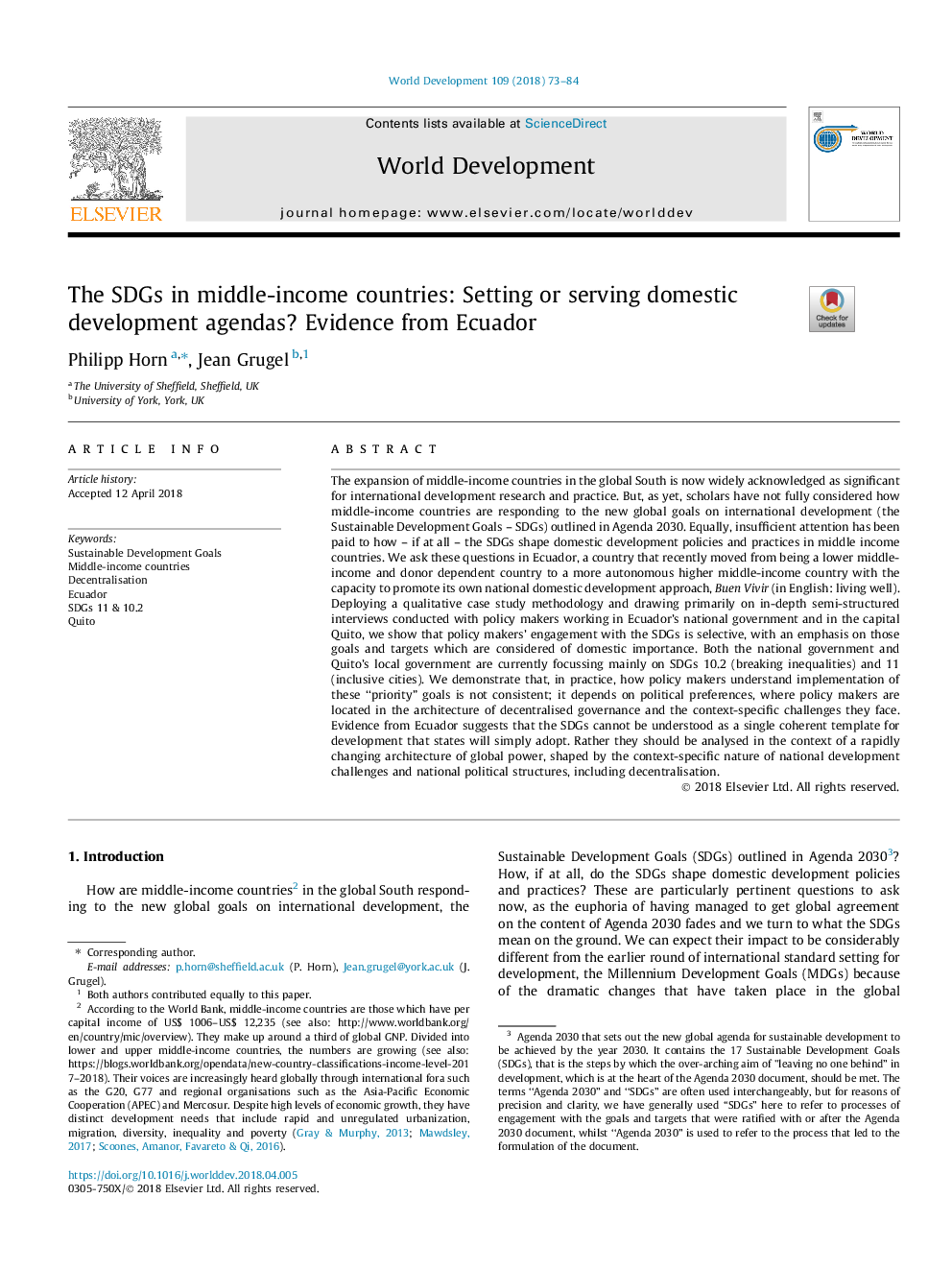| کد مقاله | کد نشریه | سال انتشار | مقاله انگلیسی | نسخه تمام متن |
|---|---|---|---|---|
| 7391556 | 1481109 | 2018 | 12 صفحه PDF | دانلود رایگان |
عنوان انگلیسی مقاله ISI
The SDGs in middle-income countries: Setting or serving domestic development agendas? Evidence from Ecuador
دانلود مقاله + سفارش ترجمه
دانلود مقاله ISI انگلیسی
رایگان برای ایرانیان
کلمات کلیدی
موضوعات مرتبط
علوم انسانی و اجتماعی
اقتصاد، اقتصادسنجی و امور مالی
اقتصاد و اقتصادسنجی
پیش نمایش صفحه اول مقاله

چکیده انگلیسی
The expansion of middle-income countries in the global South is now widely acknowledged as significant for international development research and practice. But, as yet, scholars have not fully considered how middle-income countries are responding to the new global goals on international development (the Sustainable Development Goals - SDGs) outlined in Agenda 2030. Equally, insufficient attention has been paid to how - if at all - the SDGs shape domestic development policies and practices in middle income countries. We ask these questions in Ecuador, a country that recently moved from being a lower middle-income and donor dependent country to a more autonomous higher middle-income country with the capacity to promote its own national domestic development approach, Buen Vivir (in English: living well). Deploying a qualitative case study methodology and drawing primarily on in-depth semi-structured interviews conducted with policy makers working in Ecuador's national government and in the capital Quito, we show that policy makers' engagement with the SDGs is selective, with an emphasis on those goals and targets which are considered of domestic importance. Both the national government and Quito's local government are currently focussing mainly on SDGs 10.2 (breaking inequalities) and 11 (inclusive cities). We demonstrate that, in practice, how policy makers understand implementation of these “priority” goals is not consistent; it depends on political preferences, where policy makers are located in the architecture of decentralised governance and the context-specific challenges they face. Evidence from Ecuador suggests that the SDGs cannot be understood as a single coherent template for development that states will simply adopt. Rather they should be analysed in the context of a rapidly changing architecture of global power, shaped by the context-specific nature of national development challenges and national political structures, including decentralisation.
ناشر
Database: Elsevier - ScienceDirect (ساینس دایرکت)
Journal: World Development - Volume 109, September 2018, Pages 73-84
Journal: World Development - Volume 109, September 2018, Pages 73-84
نویسندگان
Philipp Horn, Jean Grugel,